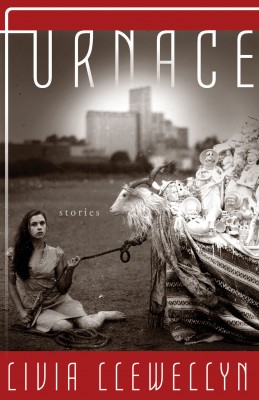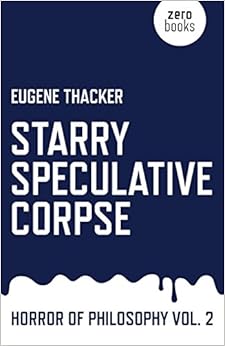
Today we have a very special guest on The Plutonian… Livia Llewellyn! Livia is the author of two collections: Engines of Desire, and her just released new collection Furnace. Livia is a poet of bruised flesh, of transformations both dreaded and desired, of dark awakenings and blinding truths. Livia is a true trailblazer and on my list of must read authors. I love her writing, combining exquisite prose with a darkly sensuous viewpoint. It is a true honor having Livia on here to answer a few questions. I eagerly encourage my readers to check out Furnace, a review will be appearing here in the next couple weeks.
The Plutonian: What book/story/film inspired you to want to be a part of the weird horror genre? What horror writers did you look up to and maybe aspire to produce work at a equal level to in your early days of being a horror fiction fan?
Livia: I’ve been a horror fan ever since I was a toddler (I have the pictures of me dancing with skeletons to prove it), and so there are so many influences in my life, it’d be ridiculous to name them all. When I started writing seriously in 2003-2004, I considered myself a fantasy writer. I joined SFWA, I signed up for Clarion, I was very focused on fantasy, albeit dark fantasy. On the second day of Clarion, they were passing out free back issues of F&SF Magazine, and I nabbed a copy that had Laird Barron’s novella “The Imago Sequence” in it. I read it that evening, and before I was even a couple of paragraphs in, I knew that that was the kind of fiction I wanted to write. And just like that I was a horror writer.
The Plutonian: Do you feel that sexuality and horror are specifically interconnected and/or are you more responding to a lack of sexuality in horror?
Livia: Horror is by its nature transgressive, and so is erotica – it’s also a liminal form of art and state of being. Horror and erotica occupy the same dark edges of human existence. We (the majority of us) shove them both to the sides of daily routine, we confine them to moments of darkness or weakness or both. We tell ourselves that horror and erotica is unnatural, immoral, and shouldn’t be a part of the “normal” human experience. And yet we oscillate within horror and erotic states of being for so much of our lives that they define us as much as, if not more than, any other states of being, even through their suppression or absence. I combine them because they’re already combined. Like love and hate, and life and death, they’re not opposites but the same side of the coin, the opposite side being the unknowable void – I just happen to point this out in my fiction. And I think many horror writers do that as well, and are celebrated for it – Clive Barker and Anne Rice being the biggest names of course, but there are many others out there.
The Plutonian: Horror fans tend to always be seeking weird and obscure works. Have there been any obscure horror books or films you have discovered recently you would like to talk about?
Livia: I know there’s been a lot of buzz about E. Elias Merhige’s 1990 movie “Begotten”, which has been sort of rediscovered in the past couple of months. I watched it a few weeks ago, and it’s unbelievably disturbing – it was very difficult for me to sit through it, I had to keep stopping the movie (it’s currently on YouTube) and walk away from the computer. As far as fiction goes, I’ve been reading hundreds of things for the Shirley Jackson Awards for 2015, so I’m not going to talk about what I’ve found among the submissions that really grabbed me – I think it’s only fair to wait until after the nomination process is over before I name names.
The Plutonian: I would say that out of any current writer working, I find you the only one capable of truly shocking me as a reader… there are moments in "Horses" and "Omphalos" that are shocking and disturbing in a very primal way. Is it important for you to be able to disturb a reader and why is it important?
Livia: I don’t try to write anything with the intent to disturb – the images that I write are fascinating to me, and I think part of my writing them down is to try to discover why those images and themes are so attractive to me. I don’t have an answer, by the way – I don’t know why I write what I write, and perhaps that’s for the best. If I ever found out, I might no longer feel the need to write, and for the time being, I don’t want that to happen.
The Plutonian: Have you any favorite dark and erotic fictions? Do you ever read some de Sade or The Story of O under candlelight?
Livia: Well, I don’t read by candlelight, as I basically live in a tinderbox. Also, unless you have a lamp, it’s almost impossible to direct candlelight onto the page – believe me, I’ve tried, and I almost burned my face off. Anyway! I haven’t read any erotic fiction lately – I just don’t have the time. My favorite erotica writer is Anaïs Nin, and as far as contemporary writers go, Jacqueline Carey is probably my favorite – her fantasy novels are very erotic, very dark. But most of what I’ve read over the years was written during the late 1800’s to mid 1900’s – mostly erotica, but a lot of it fiction that isn’t always explicit but is extremely dark, atmospheric, and sexually charged. I’m not a big believer in the “kill your darlings” rule, and the writers I like the most are the ones who didn’t throw away their most beautiful sentences, but kept them and accommodated their presence.
The Plutonian: When you write what is the primary goal for your fiction? An enjoyable read? A political message? Some creepy atmosphere?
Livia: I have absolutely no goals when I write, except to finish whatever I’m writing. I know a lot of readers have picked out feminist themes and characters in my work, or Lovecraftian philosophies (whatever those are), but I honestly don’t have anything like that in mind when I’m writing. Creepy atmosphere is important for some of my stories more than others, but mainly I just want the plot to make some kind of sense, and for the ending not to fall apart, and to not blow past the deadline too much. My editors will confirm, however, that I fail that last one all the time…
The Plutonian: What is your perfect late night double feature horror film viewing?
Livia: I don’t like watching horror movies late at night, because I’m a total chicken-shit who will sleep with the lights on and a fork in my hand afterwards. Seriously, I can’t watch horror once the sun goes down (unless it’s something stupid and campy, like American Horror Story). But I tend to watch movies that have similar themes and styles, so my double features would be along the lines of watching “The Thing” along with “The Last Winter”, or “Here Comes the Devil” along with “We Are What We Are”, or “The Others” along with “Crimson Peak”.
The Plutonian: A lot of your work seems to deal with trauma and change. Do you think change is positive or a thing to be feared… or both?
Livia: Both. I mean, it’s great to be alive, but I really hate the fact that I’m getting older and my body is starting to fall apart and someday I’m going to die. I love discovering new things and exploring new places, but I mourn the loss of restaurants and stores that no longer exist, wild landscapes that have been irrevocably changed through urban sprawl, and I fear – I know – that the things I currently love will someday suffer the same fate. But that’s just the human condition. We want change and we want things to be the same, and we put ourselves through a kind of life-long exquisite torture wanting both and rejecting each for the other and never quite finding the balance we seek – hence the trauma, I think. I know my stories address that to horrific extremes, but it’s a condition, a physical and emotional journey that even in the most fantastical and grotesque circumstances I put my protagonists through, readers can understand and even empathize with. Because it’s a very human journey, as common to each of us as breathing.
The Plutonian: Do you believe there is an ultimate meaning to life? Or do you think that life is basically unknowable?
Livia: Life is unknowable, and so is death. Everything we do and create is, I think, an attempt (consciously and subconsciously) to ascribe meaning to it. Some people feel they have the answers, others don’t. I’m still at the “I don’t know” stage.
The Plutonian: When you write, do you write for an audience or do you write for yourself and hope others like it?
Livia: I do write for myself, but I also do think of my readers, because after ten years of publication and two collections out, I know I have readers and I can’t pretend that no one knows who I am or that no one’s going to read what I write. And I’m fairly confident that the reason people like my fiction is because of what I write about and the way I write it, so I don’t sit at the computer and worry that if I have protagonist X open door A instead of B, readers will freak out and throw the book across the room – I’m also my audience, and if I like what I write, then others will like it. Hopefully, that is.
The Plutonian: And finally do you have any new works or any new projects you would like to talk about after Furnace?
Livia: I’m working on a few stories for anthologies, I’m halfway through writing stories (which I’m posting on Patreon) for an erotica collection titled Tales of the Black Century, and after that I’m finishing up my novel.





